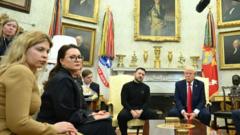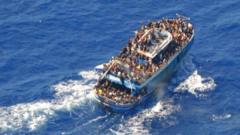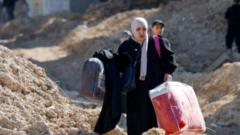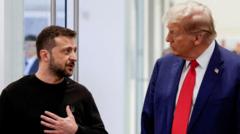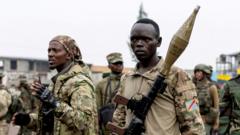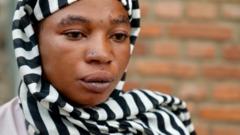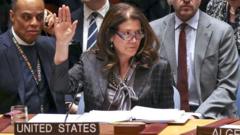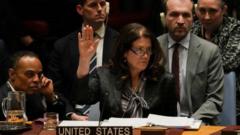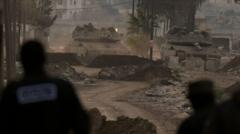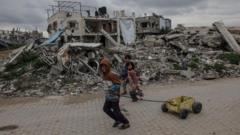The article delves into the complex narrative of Sultani Makenga, a key figure in the M23 rebel group, revealing his journey from a young Tutsi fighter in Rwanda to a commander at the forefront of recent conflicts in the DR Congo.
Rebel Leader Sultani Makenga: The Face of Turmoil in Eastern DR Congo
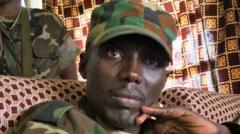
Rebel Leader Sultani Makenga: The Face of Turmoil in Eastern DR Congo
The ongoing conflict in the Democratic Republic of Congo is deeply intertwined with the life of rebel leader Sultani Makenga, who has been at the center of violence in the region.
In recent weeks, the Democratic Republic of Congo (DRC) has seen escalating violence as fighters from the M23 rebel group, led by Sultani Makenga, have advanced through the eastern territory, clashing with the national army and capturing critical areas. This resurgence of conflict has sparked significant international alarm, particularly due to the dire humanitarian implications and the renewed tensions with neighboring Rwanda, which the DRC accuses of supporting the M23 forces.
Sultani Makenga, born on December 25, 1973, in Masisi, has a storied past filled with conflict that mirrors the tumultuous history of the region itself. Initially fighting with the Rwandan Patriotic Front (RPF) during the early 1990s, Makenga became embroiled in the complexities surrounding the 1994 Rwandan genocide. His experiences shaped him into a formidable military strategist, but they also set the stage for his later clashes with power in DR Congo.
After being instrumental in the overthrow of longstanding leader Mobutu Sese Seko, Makenga soon found himself at odds with Congolese President Laurent Kabila. His subsequent defection to join the M23 group marked his transition from a former ally of the government to a rebel commander advocating for the rights of Tutsi ethnic groups in the DRC. Since then, he has advanced through the ranks, leading a brutal uprising that culminated in the 2012 capture of Goma, a significant population center in Eastern Congo.
The repercussions of his leadership are multi-faceted; thousands have died in the recent flare-up of violence and international factions have blamed the unrest on a tangle of ethnic tensions, territorial ambitions, and mineral wealth. Moreover, allegations of war crimes loom large over Makenga’s legacy, with the U.S. and UN citing serious infractions including the use of child soldiers and violence against civilians.
As political dynamics shift and no long-lasting peace seems in sight, his statement focusing on his family and desire for a better future resonates against a backdrop of suffering for millions of Congolese people. Facing a death sentence in absentia, Makenga remains a ghost-like figure, directing operations while maintaining a low profile in public. His declaration of a willingness to sacrifice everything underscores both the personal stakes involved and the tragic cycle of violence that continues to plague the DRC.

